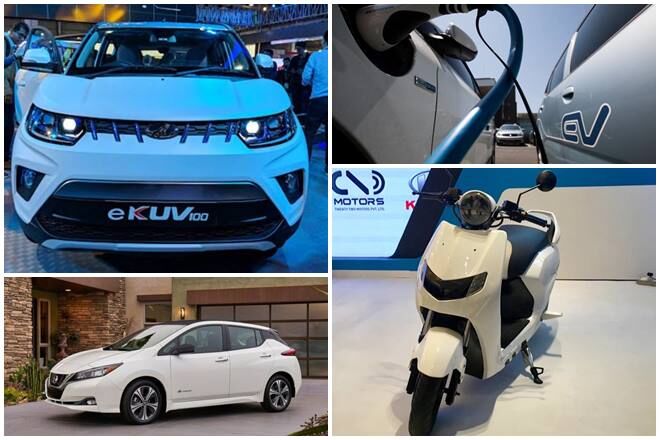Siam praises Budget 2019, requests review on EV cell import duty hike
Interim Budget 2019 brought cheers and raised expectations on growth of purchase power for middle class, but a hike on import duty for EV cells seems counter-intuitive to overall push for EVs
 Interim Budget 2019 brought cheers and raised expectations on growth of purchase power for middle class, but a hike on import duty for EV cells seems counter-intuitive to overall push for EVs
Interim Budget 2019 brought cheers and raised expectations on growth of purchase power for middle class, but a hike on import duty for EV cells seems counter-intuitive to overall push for EVsThe Society of Indian Automobile Manufacturers (SIAM) welcomed the Interim Budget 2019-20 announced by Finance Minister Piyush Goyal today. The budget has made progressive expenditure plans through higher budgetary allocation for infrastructural development and social measures.
The increase in income tax exemption upto Rs 5,00,000 in this year’s budget is expected to positively impact consumer sentiment and consumption expenditure, which will give impetus to demand for two-wheelers and small passenger vehicles, while overall improvements in road infrastructure will ease movement of people and goods on the road, thus having a positive effect on the economy.
Speaking about the income tax relief measures, Kavan Mukhtyar, partner and leader, Automotive, PwC India said, “The focus on uplifting rural and agrarian income will have a positive impact on the tractor, two-wheeler and light commercial vehicle segment. Income tax relief on income up to Rs 5 lakh will increase the disposable income for middle-class families and should translate into positive demand momentum for two-wheelers and small cars in the first quarter of the financial year 2020. By highlighting the adoption of electric vehicles as one of the 10 key dimensions for cleaner air, the government has restated its intent to drive electric mobility forward.”
The Finance Minister acknowledged the thriving Indian automotive industry during his buget speech and expressed faith on it becoming a global manufacturing hub for vehicles in the years to come. Laying an emphasis on electric mobility in the 2030 Vision of Government of India that aims at increasing energy security, reducing oil import dependence and reduce vehicular pollution. SIAM has expressed support to with the government to help create an ecosystem to better achieve the target of becoming the world leader in electric mobility.
Welcoming the push on EV, Mr Sohinder Gill, director general, Society of Manufacturers of Electric Vehicles (SMEV) said, “Prime Minister Narendra Modi’s and Finance Minister Shri Piyush Goyal’s mission of bringing an electric vehicle revolution to India by 2030 is truly path-breaking and will surely provide the much-needed impetus to the industry. The government’s focus on the use of clean energy in the transportation sector would certainly help our country tackle the issue of climate change.”
Ministry of Finance has recently notified definition and customs duties for Completely Built Unit (CBU), Semi-Knocked Down (SKD) and Completely knocked down (CKD) units of all categories of electric vehicles. SIAM welcomes the move, however the customs duty for lithium-ion batteries has been increased from nil to 5 per cent for electric vehicle manufacturing. Since cell manufacturing is at a very nascent stage at present in India, the current practice of importing cells is expected to continue and hence the change will only lead to an increase in the cost of manufacturing of electric vehicle battery packs, which is expected to be dampener in generating demand for electric vehicles. SIAM requests a review of increase in customs duty on cells.
SIAM is very enthusiastic of India leading the world economy through high economy growth in the next few years and the announcement by the Finance Minister stating a target of becoming USD five trillion economy in the next five years and USD 10 trillion economy in next eight years reassures us that the future is bright.


